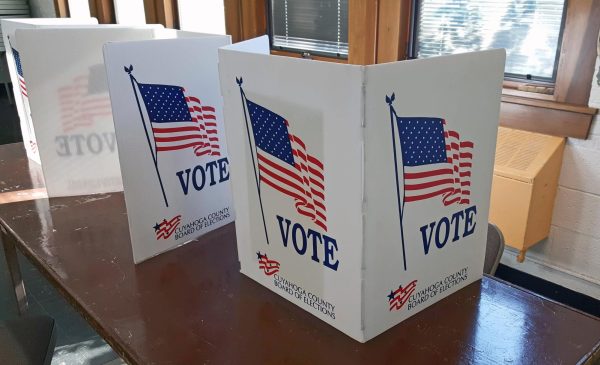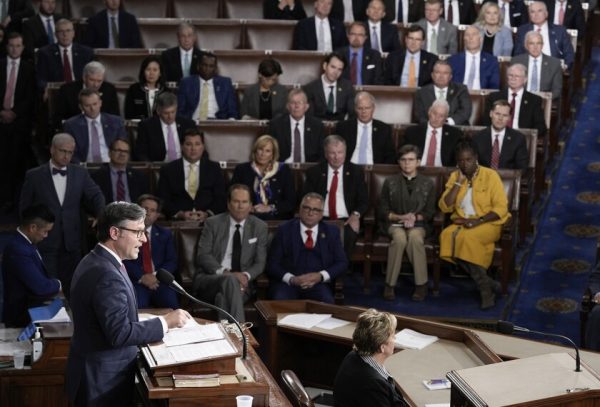President Biden’s first days in office
February 23, 2021
The first 100 days of a presidency are said to be the most crucial days, as they set the tone for the rest of the presidential term. President Joe Biden has begun his first 100 days in office and set a progressive tone for his presidency. He has already made major steps to strengthen the COVID-19 pandemic response, establish environmental protections, change immigration policies, and promote equality.
President Biden started his first day in office by signing more than a dozen executive orders, according to NBC News. The orders that have made headlines include: rejoining the Paris Agreement on climate change, ordering the government to perform equity assessments of the agencies, a proclamation to end the travel ban on the entry from Muslim-majority countries, a requirement of wearing a mask on federal property, and the cancellation of the Keystone XL Pipeline permit.
President Biden has also made major progressive steps along the lines of inclusivity. On January 26, his sixth day in office, he signed an executive order that reversed the transgender military ban, an order put into place by former President Donald Trump in 2016. According to NBC News, this means the defense secretary has to “immediately prohibit involuntary separations, discharges and denials of reenlistment or continuation of service on the basis of gender identity or under circumstances relating to gender identity.” President Biden’s gender discrimination order includes transgender athletes as well. This means that athletes can now participate on sports teams with their identified gender. All of these steps of inclusivity were made in the hopes of unifying and preventing discrimination due to gender identity or sexual orientation.
Another top priority of President Joe Biden is to reduce the U.S. impact on the environment. On January 27, he ordered the government to conserve 30 percent of federal land and water by the year 2030. Additionally, he announced that he will create “new commissions and positions within the government focused on environmental justice and environmentally friendly job creation,” according to the New York Times. This is in an attempt to show that climate change is going to be a main priority on the government agenda.
President Biden has a $2 trillion climate change agenda that Congress now has a greater chance of passing due to the fact that Democrats hold a slight majority in the Senate. President Biden also placed a 60-day fracking ban on all federal land to reduce the U.S. greenhouse gas emissions, however, this only affects less than a quarter of the U.S. oil production and natural gas, according to CNN. As for the cancellation of the Keystone XL Pipeline permit, this means the pipeline will no longer be built. The pipeline would have transported oil through Alberta to the Texas Gulf Coast.
Prior to the cancellation, the construction caused an uproar from Indegenous tribes and environmental advocate groups living in the states where the pipeline would have gone through, according to NPR. This uproar was due to the concerns of potential oil spills, the endangerment of water quality, and the destruction of tribal land.
Additionally, along the lines of the COVID-19 pandemic, President Biden made even more important steps to strengthen the response, including rejoining the World Health Organization, giving the U.S. access to major global health communication channels. On his first day in office, he mandated wearing a mask and social distancing on federal property. These rules apply when using public transportation as well. Moreover, President Biden created a position in government that will oversee all actions regarding the COVID-19 response, such as vaccine distribution and testing. He ordered the newly sworn in Secretary of Health, Dr. Rachel Levine, to support research relating to the COVID-19 virus and increase care. The COVID-19 travel restrictions have also been reinstated, meaning that non-U.S. citizens can not enter the country when traveling from countries.
On day nine of presidency, President Biden signed an executive order that reinforced the Medicaid and the Affordable Care Act that directs agencies to “reexamine policies that undermined protection for people with preexisting conditions, complicated the process of enrolling in Medicaid and the Affordable Care Act and reduced coverage and affordability of the programs,” according to NBC News. This order will permit uninsured citizens to sign up for health insurance during the COVID-19 pandemic as well. The order will help Americans get the help they need to recover from the ongoing pandemic.
President Biden has taken many crucial steps to tackle the issues that lay within the nation,, showing his determination to overcome the many challenges the country is currently facing. It can be concluded that his current main priorities are to combat climate change, curb the spread of the COVID-19 virus, and unify the country once again. The first days of President Biden’s presidency have brought unification and hope to find a light at the end of the tunnel.









